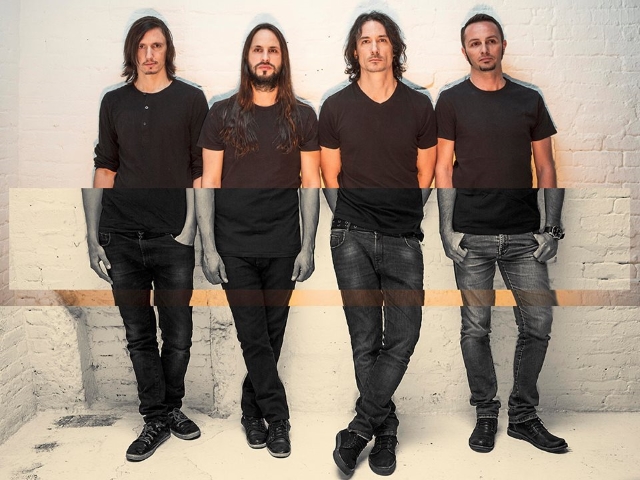There are certain bands in metal that you can rely on to surprise you, bands that change it up every album and add a new string to their bow while still maintaining a unique and identifiable sound – the Mastodon’s and the Meshuggah’s of the rock and metal world have strove to keep their audience guessing and have found new ways to keep their music fresh in the wake of the inevitable copycats. The four Frenchmen that comprise Gojira are no different. Magma is without a doubt the band’s most accessible record to date, but it may also be their most challenging for fans looking for heaviness alone.
Opening with relatively subdued The Shooting Star, it is established here that Gojira have broadened their palette further than ever before. While melodic(ish) vocals have been used in the past, here we see vocalist/guitarist Joe Duplantier fully utilising his clean singing to fantastic effect. A far more serene introduction to a Gojira than we’re used to for sure, but it’s not long before the churn of the band’s signature style of riffing present themselves in second single Silvera. Once again Duplantier’s clean vocals provide a far more catchy chorus than anything they have written previously – the same can be said for the whammy pedal abusing Stranded: the first new piece of Gojira music to be presented to the public in four years. The chorus here is not only supremely infectious but also surprisingly uplifting; the 4/4 stomp throughout makes this the closest Gojira have ever come to writing something radio friendly, and like pretty much everything else they turn their hand to, they’ve nailed it.
At this point in previous Gojira records, songs have had a tendency to blend a little due to the non-stop riff onslaught, and contrary to popular belief, having too many riffs can actually be a problem. While this is partially remedied by obligatory interlude track Yellow Stone; on Magma, Gojira show heaps of restraint, and with only eight tracks proper to digest, each song has something to pull you in, the best examples of this are The Cell and the title track. The former has a nu-metal-esque bounce in the boisterous verse riff, while the latter’s pinch harmonic motif is one of most legitimately weird things you’re liable to hear from a metal record this year.
One thing bands often seem to forget when altering their sound in any considerable way is the importance of replacing the elements that have been dialled back. In this case, we have a less riff-orientated, less heavy album in Magma, but there is an incredible amount of atmosphere filling this void. Complete with tribal percussion and chanting, Pray is a leaner version of The Art of Dying from The Way Of All Flesh, and much like its older and bigger brother, the intense slow burn rewards the listener with a powerful and memorable riff in the middle 8, while penultimate track Low Lands brings us down gently in the same way The Shooting Star led us in.
If Low Lands is the final act in Magma, Liberation is the end credits: a track made up of one acoustic guitar and gentle percussion, it harkens back to the instrumentals once found on Soulfly albums. While this album feels by design more accessible to the casual listener, it is best appreciated in one, front to back sitting. Despite having previously delivered three high quality albums, four years is a long time for any band to leave between releases, and anything less than spectacular would have likely resulted in Gojira plateauing commercially. Whether this influenced the writing process or not, it is timely that the band should release their most succinct and accessible record at this point in their career, and it is hard to imagine the band not scaling higher up our festival line ups as a result of this. Magma is a clear success in expanding Gojira’s sound, but where they go from here is even more intriguing.
9/10
Standout Tracks: Silvera, Stranded, Pray
For Fans Of: Opeth, Meshuggah, Mastodon
Written By: Josh Graham





